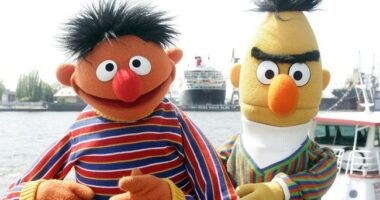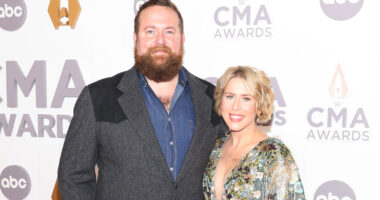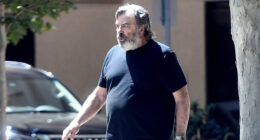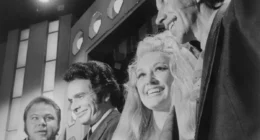
Kaja Kallas, the European Union’s foreign policy chief, warned against a “quick fix” and a “dirty deal” to end the war, saying that Europe and Ukraine must be at the table for talks because no peace deal can be implemented without their involvement.
For European members of NATO the future suddenly looks a whole lot more uncertain. Since the foundation of the alliance, Europe has relied on the American nuclear umbrella, the deployment of sizable US military contingents in Europe and the vast US defence budget and weapons pipeline.
Trump’s call with Putin, and his subsequent announcement that negotiations would begin immediately on reaching a deal in Ukraine, blindsided European leaders and threatened to leave them with the grunt work of funding and overseeing any settlement.
In other words: Washington will do the deal (and may get paid in rare earth minerals by Ukraine as Trump has demanded), and Europe will pick up the tab.
Newly minted US Defence Secretary Pete Hegseth told NATO allies in Brussels that European and non-European troops – but not Americans – would have to police any agreement between Ukraine and Russia.

There was also a brutal denial of Ukraine’s aspirations to join the alliance. Hegseth said Washington did “not believe that NATO membership for Ukraine is a realistic outcome”.
A NATO official subsequently briefed that “NATO membership is not necessarily something that needs to be negotiated with Russia. It’s something that’s a decision for allies and that decision has been linked to when the time is right.”
The official insisted that “the alliance’s position has not changed and Ukraine is still on a path to membership.”
‘Any deal behind our backs will not work’
The Europeans, both in NATO and in the EU – are struggling to be heard as Trump focuses on doing a deal with Putin to end what he has called the pointless bloodshed in Ukraine.
Kallas said that “any deal behind our backs will not work.” She added that “appeasement also always, always fails. So Ukraine will continue to resist and Europe will continue to back Ukraine.”
The allies have been fond of the mantra “No settlement in Ukraine without Ukraine”. That might now be expanded to “…without Ukraine and Europe”.

Six European governments, including France, the UK and Germany, said on Wednesday night in a panicked joint statement: “We are looking forward to discussing the way ahead together with our American allies.… Ukraine and Europe must be part of any negotiations.”
Speaking to CNN Thursday, Lithuanian Defence Minister Dovilė Šakalienė noted that Europe provided Ukraine with $US125 billion ($198.6 billion) in aid last year (much of it financial support), and the US $US88 billion ($139.8 billion), “so I think we earned a place at the table.”
Šakalienė and her Baltic counterparts, on Russia’s borders, are especially anxious at the turn of events.
She said there was a stark choice: “Whether we decide to fall under the illusion that Mr. Trump and Mr. Putin are going to find a solution for all of us, and that would be a deadly trap, or we will, as Europe, embrace our own economic, financial and military capacity.”
Šakalienė acknowledged that historically the US had been “paying for our security. And that needs to be corrected.”
Her Estonian counterpart, Hanno Pevkur, cited the poet Alexandre Dumas – “One for all, all for one” – as the bedrock of the transatlantic relationship, and also spoke of raising defense spending.
But production lines, investment in new technology and recruitment do not happen overnight. There’s been intense talk since Russia’s full-scale invasion of Ukraine began of ramping up defence industries in Europe. But that’s a multi-year process.
Those words were echoed on Thursday by NATO Secretary General Mark Rutte.
“We are not producing enough and this is a collective problem…. Russia is producing in three months in ammunition, but the whole of the alliance is producing in a year.”
European weapons manufacturers have also complained about arcane decision-making processes in Brussels, where the European Commission has angled for a much greater role in procurement.

Ukraine holds first football tournament for war-wounded amputees
And this sudden increase in spending is expected at a time of sluggish growth and tight public finances.
The events of 1989, when the Soviet bloc evaporated, left a legacy of defence cutbacks in the West that are only now being reversed.
Together, as Zelenskyy noted this week, Ukraine and Europe have fewer men under arms than Russia.
Zelenskyy is doubtful that Europe or another monitoring force alone is up to the task of securing any peace.
“I don’t think any UN troops or anything like that have ever really helped anyone,” he told The Guardian this week.
“We are for a (peacekeeping) contingent if it is part of security guarantees, and I would underline again that without America this is impossible.”

With Hegseth saying there is no way the US will commit troops to some sort of 1000-kilometre long demilitarised zone stretching from the Black Sea to Kharkiv, there is no clarity over what those guarantees might be.
Zelenskyy said Thursday that rather than a contingent of maybe 5000 peacekeepers, there would need to be 100,000 as part of a “deterrent package.”
Some European ministers fear that Trump fatally misunderstands Putin.
German defence minister Boris Pistorius said on Thursday he regretted the new administration taking Ukraine’s prospective membership of NATO off the table immediately and added: “Putin is constantly provoking the West and attacking us again. It would be naïve to believe the threat would actually diminish after such a peace agreement.”
Their next chance for allies to temper – or at least interrogate – the administration’s strategy will be at this weekend’s Munich Security conference, to be attended by US Vice-President JD Vance and Trump’s special envoy to Ukraine, Keith Kellogg.
Moscow, of course, is gloating at the relegation of Europe to bystander. Responding to a question from CNN Senior International Correspondent Fred Pleitgen in Moscow on Thursday, Russian Foreign Minister Sergey Lavrov said that “many in the West, including the leaders of the European Union, were shocked when a simple, normal conversation took place between two polite, educated individuals.”
Europeans may now be forgiven for glancing backwards to existential moments in their modern history.
One is the Munich agreement of 1938 that gave Hitler free rein to continue Nazi aggression against allies that were neither armed nor ready for war against a fully militarised society.
The other is the Soviet invasion of Czechoslovakia in 1968 that suppressed the Prague Spring, an effort at liberalisation that threatened Moscow’s dominance of Eastern Europe, just as Ukraine’s sharp tilt to the EU was seen as a threat by Putin.
“To many Americans it has seemed that a prosperous Western Europe was not making a reasonably proportionate contribution to the common defense effort,” Jackson said.
“I am convinced that the future vitality of the alliance depends in very large measure on the degree and quality of European efforts to keep NATO strong.”
Fast forward half a century and the demands of the Trump administration that European members of NATO, many of which have struggled to reach a defense spending target of 2 per cent of GDP, are now expected to hit 4 or 5 per cent – (a level higher even than the US) and step beyond that security umbrella.







